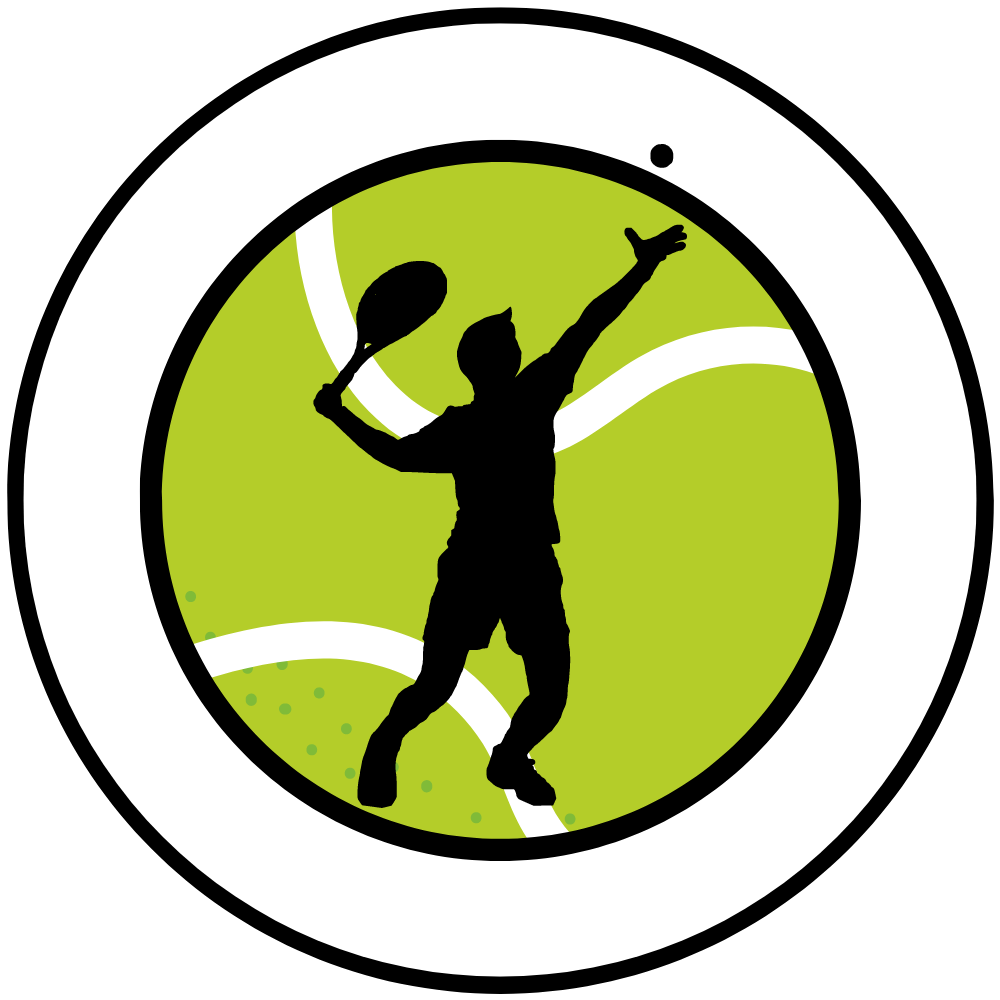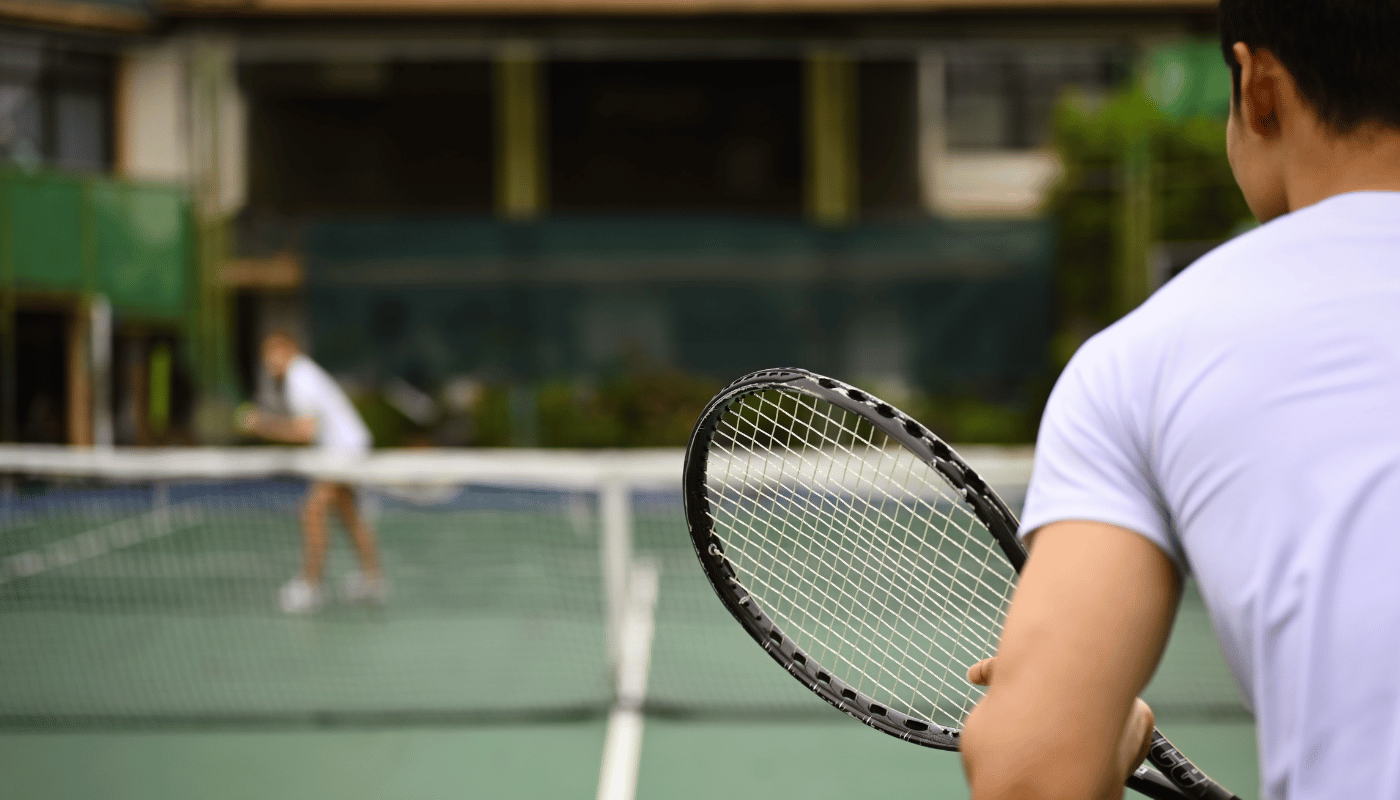Deciding when to start tennis lessons is a crucial step in your or your child’s athletic journey. Tennis, renowned for its agility, strategy, and physical demands, offers not only fitness benefits but also teaches valuable life skills such as discipline, sportsmanship, and resilience. Understanding the right time to embark on tennis training sets the foundation for a rewarding experience in this beloved sport.
Understanding the Optimal Age for Tennis Lessons
When considering when to start tennis lessons, it’s important to reflect on the optimal age for learning the game. While individuals can begin at various points in their lives, certain age ranges are particularly conducive to grasping the fundamentals of tennis effectively.
Starting tennis lessons at a very young age may seem daunting, but many tennis academies offer programs designed for toddlers and preschoolers. Children as young as three to five can engage in basic tennis activities that focus more on motor skills than actual technique. These programs often incorporate playful drills, encouraging kids to run, jump, and swing without the pressure of structured play. The aim is to foster a love for movement and sports.
As children grow and gain confidence, structured lessons can gradually introduce them to the game’s rules and strategies. Once they reach their elementary school years, typically ages six to ten, they exhibit more controlled movements and cognitive understanding. This stage is ideal for introducing foundational tennis skills such as proper grips, strokes, and footwork. Lessons at this age often emphasize both individual practice and cooperative play with peers, reinforcing social skills like teamwork and communication.
Adolescence, spanning ages eleven to fifteen, is viewed as a crucial period for serious athletes. The decision to start tennis lessons during this age can depend on the individual’s goals—whether they seek casual enjoyment or aspire to compete at higher levels. Teenagers have a greater capacity for understanding strategy and competition, allowing for more advanced techniques to be taught. The mental aspect of the game becomes increasingly important, and lessons can incorporate tactical elements such as shot selection, court positioning, and match preparation.
While youth is often highlighted for tennis instruction, adults can successfully start lessons at any age. Whether initiating a new hobby, seeking fitness, or wanting to connect with family through sports, adult learners bring unique perspectives and motivations to the court. Adult programs typically focus on building confidence and addressing specific recreational goals rather than formal competition. Additionally, the social aspect plays a significant role, as many adult beginners find community through group classes or leagues, creating friendships while improving their skills.
Factors Influencing the Decision to Start Tennis Lessons
Deciding when to start tennis lessons is influenced by several factors beyond just age. Understanding these considerations will assist in making the most informed choice possible.
Interest Level: One of the foremost factors determining when to start is the interest level. Recognizing early signs of enthusiasm for tennis—like watching matches on television or seeing friends play—can indicate readiness for lessons. If a child expresses excitement about playing, it’s wise to nurture that passion by enrolling them in beginner courses. Conversely, forcing lessons upon disinterested individuals can lead to frustration and burnout.
Physical Readiness: Tennis requires a blend of agility, coordination, and endurance. Parents should evaluate whether their child has developed sufficient motor skills to participate in lessons without feeling overwhelmed. For adults, assessing general fitness levels and joint health can also be key in determining when they can comfortably begin tennis.
Availability of Local Programs: Quality coaching and availability of local programs significantly influence when to start. Finding well-structured programs led by qualified instructors ensures that novices receive proper guidance. Researching nearby clubs and facilities can reveal opportunities for all ages. A beginner might consider starting lessons if they find a program that fits their schedule and provides a welcoming atmosphere.
Goals and Aspirations: Individual aspirations play a vital role in knowing when to start tennis lessons. Setting clear goals—be it recreational play, fitness improvement, or competitive aspirations—can give direction to the learning process. Understanding these objectives enables instructors to tailor lessons to meet specific needs, ensuring a fulfilling experience for each learner.
Time Commitment: Starting tennis lessons also depends on the amount of time one can commit to practice and improvement. Regular attendance and consistent practice are crucial for progress. Assessing your or your child’s schedule to ensure there is enough time for lessons and practice sessions is essential before enrolling.
Financial Considerations: Tennis lessons can vary in cost depending on the location, level of instruction, and facilities provided. It’s important to consider the financial investment required for lessons, equipment, and possibly travel to training centers. Ensuring that the cost aligns with your budget can prevent financial strain and ensure sustained participation.
Preparing for Tennis Lessons: What to Expect
Once you decide to start tennis lessons, it’s important to prepare properly to get the most out of your experience. Knowing what to expect can help reduce any nervousness and make you look forward to training.
First, finding the right coach is essential. Not every coach will be the perfect match, so take the time to research and choose someone who fits your needs. Ask friends or family for recommendations, read online reviews, and consider watching a trial lesson to see if the coach’s teaching style works for you. A good coach will help you learn effectively and enjoy the game.
Having the right equipment is also important. You don’t need to spend a lot of money on gear right away, but having a decent racket and comfortable clothing will make your lessons more enjoyable. Talk to your coach about what equipment is best for your skill level to ensure you are comfortable on the court.
Setting realistic expectations is key to staying motivated. Improvement in tennis takes time and regular practice. Celebrate small achievements and understand that everyone learns at their own pace. This positive mindset will help you handle challenges and keep you excited about learning.
Balancing practice and play will reinforce what you learn in lessons. Try to find time to practice on your own or play casually with friends and family. Joining local leagues or social games can also provide more opportunities to apply your skills and enjoy the sport.
Finally, preparing mentally is just as important as physical preparation. Developing focus, patience, and resilience will enhance your learning experience. Techniques like setting goals, visualizing successful plays, and maintaining positive self-talk can help build your mental toughness and strategic thinking on the court.
Benefits of Starting Tennis Lessons Early
Beginning tennis lessons at an early age offers numerous advantages that extend beyond the sport itself. Here are some key benefits:
- Physical Development: Tennis promotes overall physical fitness, enhancing agility, balance, and coordination. Regular participation helps build muscle strength and cardiovascular endurance, contributing to a healthy lifestyle from a young age.
- Cognitive Skills: Learning tennis involves strategic thinking and quick decision-making. Children develop better concentration, problem-solving abilities, and tactical awareness as they learn to anticipate opponents’ moves and plan their own strategies.
- Social Skills: Tennis lessons often involve interacting with peers, fostering teamwork, communication, and sportsmanship. These social interactions are crucial for developing interpersonal skills and building lasting friendships.
- Emotional Growth: Engaging in sports like tennis helps children manage emotions, cope with wins and losses, and build resilience. They learn to handle pressure and develop a strong sense of self-confidence and self-esteem.
- Long-term Commitment to Health: Starting young instills a lifelong appreciation for physical activity and healthy living. Children who engage in sports early are more likely to maintain an active lifestyle into adulthood, reducing the risk of chronic diseases.
Common Misconceptions About Starting Tennis Lessons
There are several myths that can discourage people from starting tennis lessons. One common belief is that it’s too late to begin playing as an adult. However, adults can successfully learn and enjoy tennis at any age with dedication and proper coaching. Another misconception is that only natural athletes can excel in tennis. In reality, consistent practice and good instruction allow anyone to improve their skills, regardless of their natural talent.
Some people think that starting tennis lessons at a young age guarantees professional success. While early training can provide a strong foundation, becoming a professional requires a combination of talent, hard work, and perseverance. Not everyone who starts young will turn professional, but they will still gain valuable skills and enjoy the sport. Additionally, there is a belief that expensive equipment is necessary to play tennis well. Beginners do not need to invest heavily in gear initially; affordable and suitable equipment is sufficient to start learning and having fun.
Lastly, many assume that only singles tennis is beneficial, but playing doubles also offers unique advantages. Doubles play can improve teamwork and communication skills, while singles focus more on individual strategy and technique. Engaging in both formats provides a well-rounded tennis experience, helping players develop a broader range of skills and enjoy the game more fully.
Starting Tennis Lessons: Key Milestones and Age Recommendations
To provide a clearer picture of the optimal timing for starting tennis lessons, the following table outlines key milestones and age recommendations:
| Age Range | Key Milestones | Recommended Focus |
| 3-5 Years | Basic motor skills, hand-eye coordination | Fun activities, introduction to racket handling |
| 6-10 Years | Developing strokes, footwork, and game rules | Fundamental skills, social interaction |
| 11-15 Years | Advanced techniques, strategic play, competition | Tactical training, match preparation |
| 16+ Years (Adults) | Building confidence, recreational play, fitness | Personalized goals, social engagement |
Practical Tips for Starting Tennis Lessons
Starting tennis lessons can be an exciting yet overwhelming experience. Here are some practical tips to ensure a smooth and effective beginning:
- Choose the Right Time: Ensure that the chosen time for lessons fits well with your or your child’s daily schedule to maintain consistency.
- Stay Committed: Regular attendance and practice are crucial for improvement. Make tennis a part of the routine to see steady progress.
- Communicate Goals: Clearly communicate your or your child’s goals with the coach to tailor the lessons accordingly.
- Stay Positive: Maintain a positive attitude, especially during challenging times. Encouragement and support can significantly impact motivation and enjoyment.
- Monitor Progress: Keep track of improvements and milestones to stay motivated and identify areas that need more focus.
Conclusion
Deciding when to start tennis lessons involves careful consideration of age, interest, physical readiness, and personal goals. Recognizing these factors will set the stage for a fruitful introduction to a sport filled with joy, exercise, and lifelong skills. Whether you’re a child taking your first swing or an adult embarking on a new athletic endeavor, approaching lessons with an open heart and a willingness to learn will undoubtedly yield rewards on and off the court. Embrace the journey, and let the love for tennis flourish!

